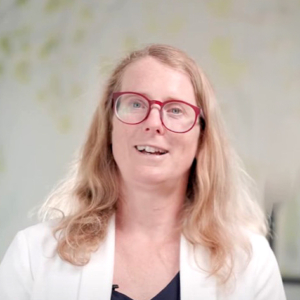
Vitamin C Infusions And Cancer – Does It Really Work?
In recent years, the integration of complementary and alternative medicine with conventional cancer treatments has gained considerable attention. Among the emerging therapies is the use of high-dose vitamin C infusions as an adjunct to cancer treatment. While vitamin C has long been recognized for its immune-boosting properties, recent studies have shed light on its potential as an anti-cancer agent. In this blog post, we will explore the science behind vitamin C infusions for cancer and delve into the current understanding of its efficacy and safety.
Why do you give Vitamin C as an injection and not as a tablet?
You can reach much higher concentrations of Vitamin C in the blood stream compared to when you take a tablet. This is because the stomach and bowel do not absorb all the vitamin C you take as a tablet. Often, the levels of Vitamin C in the bloodstream after you take it as a tablet are unpredictable but they certainly to not reach very high levels.
One advantage of giving vitamin C as an infusion is that it can can bypass the bowel and the stomach. When you have Vitamin C as an infusion, the levels in your bloodstream can be 30 to 70 times higher compared to tablets. However, these very high concentrations only last for 2 hours. This is because the kidney clears the Vitamin C quite rapidly.
In cancer, studies could prove that giving Vitamin C as an infusion was more effective. People with cancer who took vitamin C tablets only did not notice any response in a major study that was performed at the Mayo Clinic.
Why are some cancer doctors reluctant to give Vitamin C infusions to cancer patients?
Vitamin C protects the DNA of the cells inside your body from damage. In contrast to that, the ultimate goal of chemotherapy or radiation for cancer is to damage or destroy the DNA of the tumour cells to stop the tumour from growing. So this does not go well together, does it?
But when scientists looked at cancer cells in the laboratory and mixed them with very high dosages of Vitamin C, they found that Vitamin C was able to destroy cancer cells. This was not the case when doctors gave Vitamin C to real patients, so there seems to be quite a discrepancy between studies in the laboratory and studies on real humans. So let’s look at what Vitamin C does to cancer cells in the lab and then look at what it does to real humans.
How does Vitamin C work in healthy humans?
Inside the cell, vitamin C (ascorbic acid) participates in various biochemical processes to support cellular health and function. Here’s a breakdown of how vitamin C works inside the cell:
- Antioxidant Activity: Vitamin C is a potent antioxidant, meaning it helps neutralize harmful free radicals in the cell. Free radicals are highly reactive molecules that can damage cellular components, such as DNA, proteins, and lipids, leading to oxidative stress and cellular dysfunction. As an antioxidant, vitamin C donates electrons to stabilize free radicals, rendering them less harmful.
What does Vitamin C do to cancer cells in the laboratory?
Let’s have a look at what vitamin C does to the tumor cell and why scientists think that Vitamin C can improve the outcome of cancer. One thing you do have to keep in mind is that a lot of these results are based on studies done on tumor cells outside of the human body in a lab. Clinical studies on real humans have so far only shown that Vitamin C in very high concentrations can improve your quality of life and may be able to prolong your life expectancy slightly.
Starve the cancer cell
Vitamin C blocks a receptor in the cell that transports glucose (a small sugar molecule). As a result, the cell does not have enough sugar and starts starving. This can slow the cell down a lot or even cause its death.
Deplete the cancer cell of oxygen
Some cancer cells grow so rapidly that there are not enough blood vessels to supply the cancer cells with oxygen. Due to that, the clever tumor cells have got much higher levels of one protein that protects them against low oxygen levels. This protein is called HIF -1 Alpha. It helps tumor cells survive in the body even if there is not much oxygen present. Vitamin C in very high dosages can deplete the tumor cell of this protein and as a result, the tumor cell will need as much oxygen as any other cell in the body. If there is not enough oxygen in the tumor cell, it can slow the growth of the tumor.
Reprogram its natural death cycle
Vitamin C can control the so-called “cell death genes”. Every cell in our bodies is programmed to die, for example, if it gets damaged or if it is not needed. The cancer cell switches these “cell death genes” off. As a result, the cell becomes immortal and the cancer can continue to grow.
Increase toxins in the cancer cell
One big theory is that Vitamin increases the concentration of hydrogen peroxide in the cell. This is toxic for the cell and damages it.
What else does Vitamin C do in cancer patients?
Vitamin C can also normalise the immune system. When someone has got cancer, they have a lot of inflammation going on in their bodies. Due to that the immune system may not be able to attack the cancer cells as it would normally do. Vitamin C helps to normalise the immune system so that it can better attack the cancer cells.

Do cancer patients have low Vitamin C levels in their bodies?
Cancer patients can sometimes have lower levels of vitamin C compared to healthy individuals, but this is not universally true for all cancer patients. Several factors can contribute to vitamin C deficiency in cancer patients:
- Malnutrition: Cancer and its treatments can lead to loss of appetite, difficulty eating, and changes in metabolism, which can result in malnutrition. Inadequate dietary intake of vitamin C can lead to lower levels in the body.
- Increased metabolic demands: Cancer cells often have increased metabolic needs compared to healthy cells, which can deplete the body’s stores of vitamin C.
- Chemotherapy and radiation therapy: Some cancer treatments, such as certain chemotherapy drugs and radiation therapy, can affect the absorption, utilization, or metabolism of vitamin C in the body.
It is important to note that not all cancer patients will have low vitamin C levels and individual variations exist. Additionally, the relationship between vitamin C and cancer is complex, and research on the topic is ongoing
How do Vitamin C Infusions work for real humans with cancer?
Very unfortunately, high-dose Vitamin C injections almost never have the same spectacular effect in humans as they have on tumour cells in the laboratory. But the current research did show a few benefits for cancer patients, mainly improvements of quality of life and less toxic side effects of the chemotherapy.
What are the benefits of Vitamin C injections for cancer patients?
There are quite a few studies out there that have shown multiple benefits of high-dose Vitamin C injections for cancer patients. But it is really important that you understand that Vitamin C is NOT a cure for cancer. Quite a few, high-quality clinical studies have shown that Vitamin C Injections
- can improve the quality of life of cancer patients.
- you may feel better when you get vitamin C infusions
- may prolong your life expectancy
- may reduce side effects from chemotherapy such as nausea, fatigue and dizziness
- enhance the effect of a few chemotherapy drugs
But again, it is important to know that there are no spectacular clinical trial results so far (written in June 2023). Remissions may occur but also occur with other treatments.
How much Vitamin C should I have?
When you have vitamin C as a tablet, you can reach a maximum of 3 to 4 mg/100 ml in your bloodstream. This is slightly higher when you take liposomal vitamin C, approximately 6 to 8 mg/100ml. Compared to that, you can reach much higher vitamin C levels in your bloodstream with infusions, approximately 50 to 70 times higher. Vitamin C is quickly excreted by the kidneys, so it only stays in the bloodstream for a few hours.
There are some studies that gave vitamin C through the rectum but not many people may like this idea.
The current opinion among researchers is that Vitamin C infusions are the most effective treatment option.

What happens during my appointment for the Vitamin C infusion?
- Preparation: Before the infusion, a small cannula will be inserted into your vein, usually in the arm. This acts as a pathway for the vitamin C solution to enter the bloodstream. The area will be thoroughly cleaned to ensure aseptic conditions.
- Vitamin C Solution: The vitamin C solution is carefully prepared, ensuring its purity and quality.
- Administration: Once the cannula is in place, the healthcare professional will start the infusion. This delivers the vitamin C solution directly into your bloodstream. The process is typically slow and monitored closely to ensure your safety and comfort.
- Relaxation: During the infusion, you will have an opportunity to relax in a comfortable setting. Many clinics provide a serene environment, often with cosy seating and soothing music to enhance relaxation.
Are Vitamin C Injections Safe?
When a qualified health professional with qualifications in Vitamin C administration treats you, these injections are quite safe. There are some concerns that Vitamin C injections at a very high dose and over a longer period of time can lead to kidney stones (oxalate kidney stones). But the risk is deemed low if you never had any problems with your kidneys. To be on the safe side, the doctor or nurse who gives the injection should always make sure that you had a blood test before the infusion to check your kidneys.
You should also get a blood test to make sure that you don’t have a blood disease called the 6-Glucose-Dehydrogenase deficiency.
It is also important that the doctor or nurse who gives the Vitamin C injection administers the right concentration over the right amount of time. If the concentration is too high and is given very quickly it can cause seizures. It is also paramount that the procedure is performed under a sterile technique to prevent any infections.
Please read more about Vitamin C injections and their safety in our blog about this topic.
Speak to our doctor at Satini Cosmetic Clinic
If you consider getting Vitamin C infusions to improve your well-being in relation to any form of cancer, we would recommend that you speak to your cancer specialist first. If your cancer specialist supports you having Vitamin C infusions, we expect to have some guidance from the specialist as to how much and how often you should have them. We can contact the specialist on your behalf or you can provide a letter from the specialist.
If you decided not to have chemotherapy or any other conventional treatment for your cancer, it is important to understand that Vitamin C is not a treatment for cancer. Instead, it can help you feel better and potentially prolong your life expectancy by an unknown and predictable duration of time.
Nutrients. 2021 Mar; 13(3): 735. Anna Zasowska-Nowak,1,* Piotr Jan Nowak,2 and Aleksandra Ciałkowska-Rysz1High-Dose Vitamin C in Advanced-Stage Cancer Patients.
Nutrients. 2020 Jul; 12(7): Anitra C. Carr1,* and Sam Rowe2 Factors Affecting Vitamin C Status and Prevalence of Deficiency: A Global Health Perspective.




